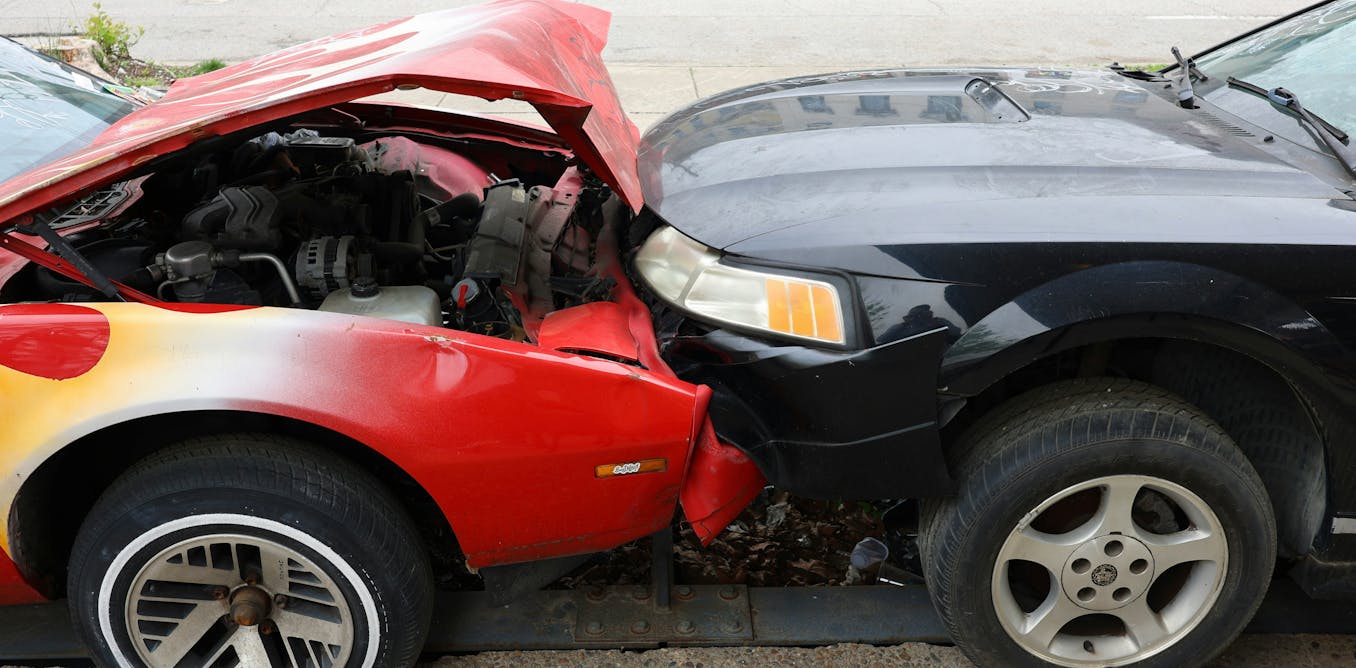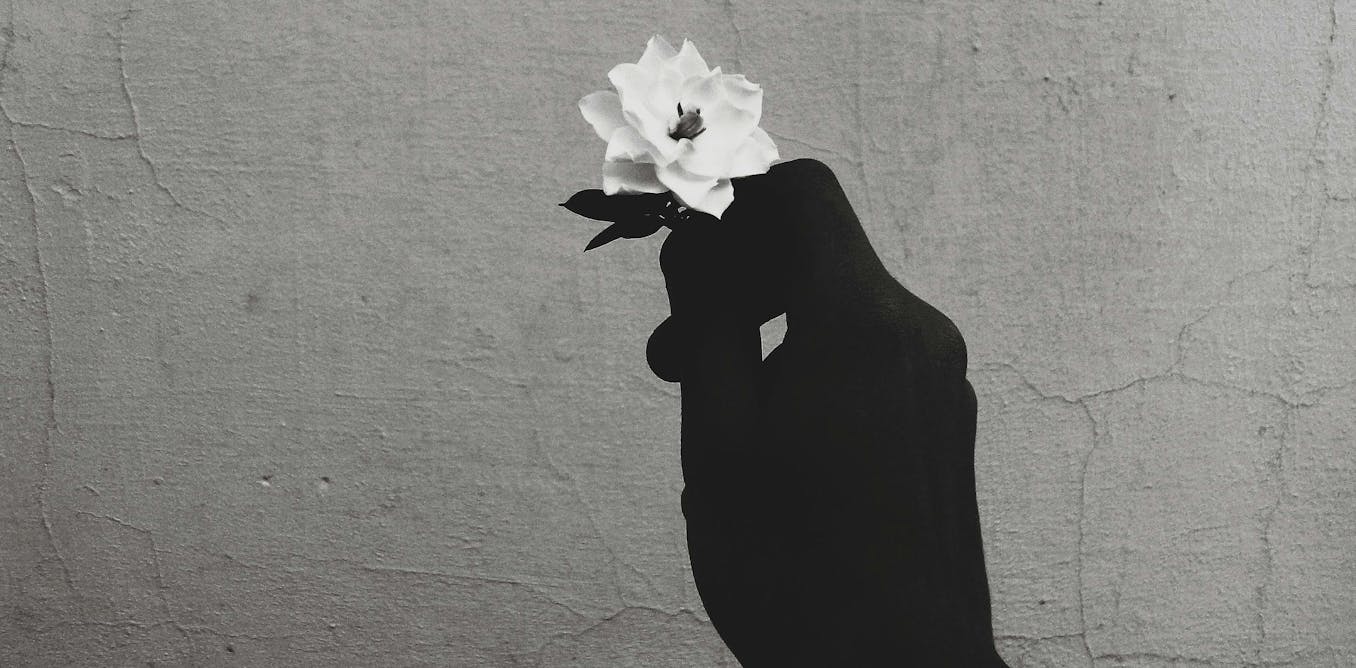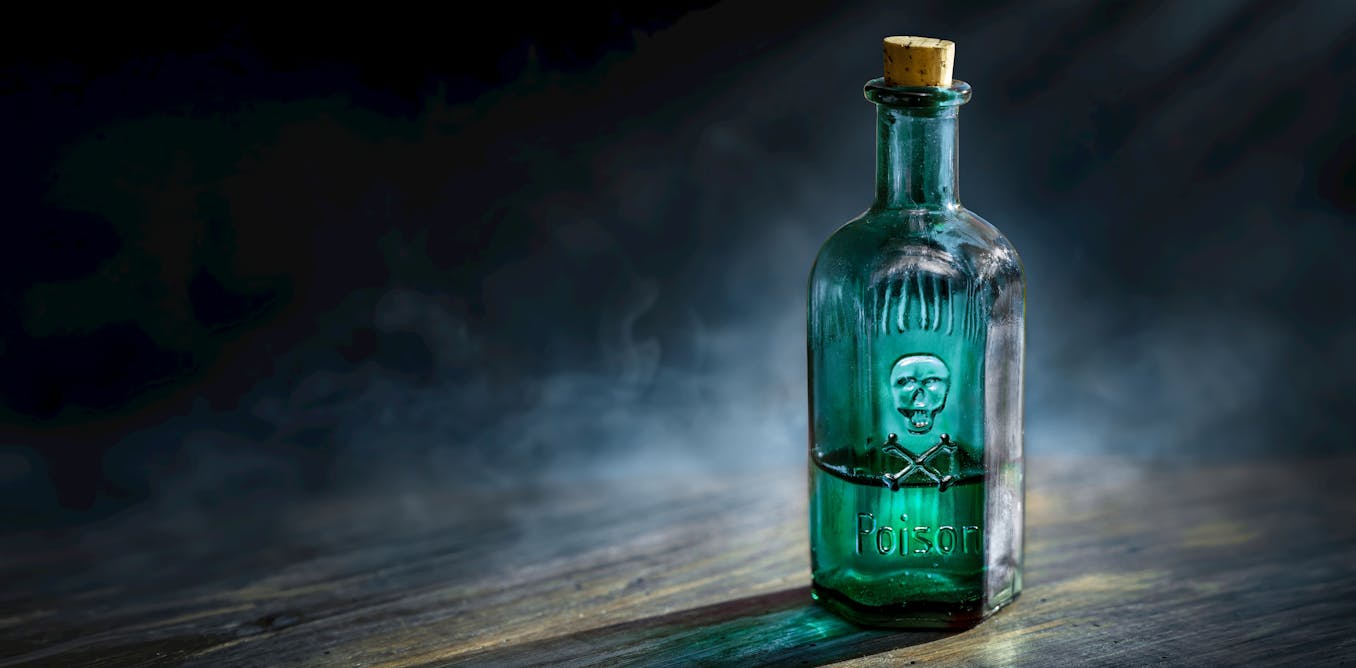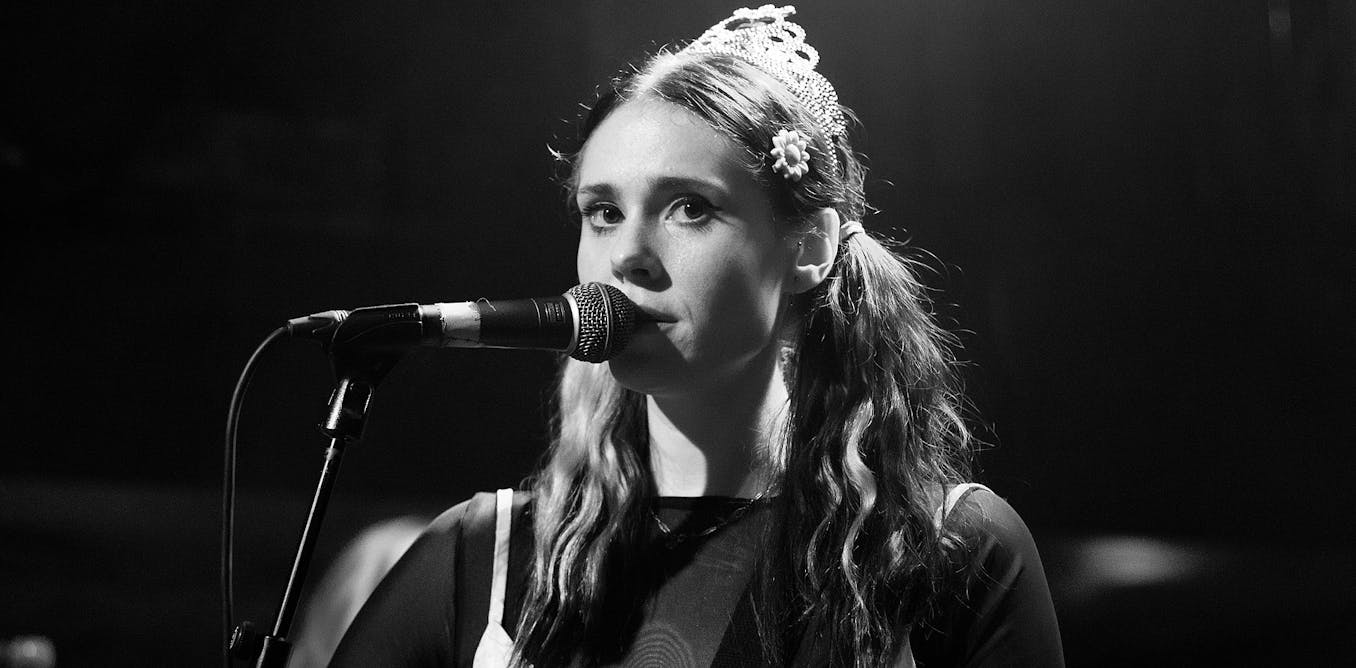Few rock albums live as long and varied a life as The Who’s Tommy. Since its release in 1969, guitarist Pete Townshend’s conceptual masterpiece — centered around the story of the titular boy who witnesses a murder, becomes a “deaf, dumb and blind” pinball wizard, then something like a rock star-savior — has been translated into various mediums, including Ken Russell’s wild 1975 film starring the likes of Tina Turner, Elton John and Jack Nicholson.
But none have persisted quite like The Who’s Tommy, the groundbreaking 1993 stage musical directed by Des McAnuff that brought Townshend’s electrifying music and haunting story to Broadway. It was nominated for 11 Tony Awards and won five, including best original score for Townshend and best direction for McAnuff.
Three decades later, The Who’s Tommy is back in its first major Broadway revival — a searing production with a cast of standout vocal and acting talent led by 24-year old Ali Louis Bourzgui as Tommy. If the show still feels incredibly vital, that’s in large part because McAnuff, who returns to direct, and Townshend still are, too. And as they told Billboard in a wide-ranging conversation, this production (a likely contender for best revival of a musical when the 2024 Tony nominations are announced April 30) is anything but the end of their alchemical creative partnership.
Back before the original Broadway production, what convinced you to turn Tommy into a musical, Pete, and why with Des?
Pete Townshend: You know, The Who were not a particularly financially successful band. We had big hits and Tommy was our biggest, but the money didn’t exactly roll in. I tended to work purely for the art. I had written a bunch of songs, all of which had done pretty well, and one was “I Can See For Miles” which I took a lot of trouble with recording and arranging harmonically. I think still to this day it’s a masterpiece, and I can’t really work out why it isn’t in the shrine of rock history as the best song ever written about anything at all.
So after it [underperformed in the U.K.], I thought, “F–k, what am I going to have to do to get the interest of the public and maintain it and also to harness this incredible machine” which the band was at that time as a performing band. It hit me that I should write a major piece, a collection of good rock songs strung together that will tell a story. At the time, I was absolutely not interested in anything to do with music, theater, movies, anything other than just providing something for my band — something that would last, that we could perform on the stage.
Whip pan forward to 1992: I haven’t performed with The Who for nearly 10 years, I had gone to work with publisher Faber & Faber as a commissioning editor for a pop culture imprint within the company, I was doing some solo work. And I had a cycling accident, fell and broke my wrist, and my surgeon told me I’d never play music again with my right hand, so I thought, well, I’ve got to make a living. As ever, every couple of years the phone would ring and my manager would say “Somebody wants to talk to you about doing a theatrical version of Tommy” — God forgive me, it was ice skating Tommy, it was ballet Tommy, brass band Tommy, there was a reggae Tommy. And I just was not interested in any of it to be honest.
But when Des flew over to New York in late summer or early fall of ’92, I daresay — I don’t want to embarrass Des — that we fell in love. We struck an immediate relationship and I knew we would be friends forever, whether or not we worked together. And that’s where it began. I think Des has been so fantastic to hang on to the integrity of the original story, all of the nuances and some of the bum notes, and I thank him for that. And you know, I’ve done what I can to help out along the way.
When the original Broadway run ended (and then subsequent tours and productions elsewhere, like the West End), did you feel like a chapter was closed? Or did you have a sense that there might be a reason to revisit it down the line together?
Des McAnuff: It was kind of open ended — there wasn’t a moment where we said, “Okay, well, this is over.” Ultimately what happened is, I was traveling in Costa Rica and saw that Pete had called, and he suggested that we start talking about a film project, whether it was a motion picture or a live capture, he felt that the time had come. And I was very excited by that. We did a screenplay, and as we were doing it, we kind of said, hey, you know, it’s really time to reimagine this [for Broadway].
That was several years ago, and pre-COVID we started working on this in earnest. Nothing is easy, particularly in the theater — or for that matter in rock ‘n’ roll. But this has been remarkably smooth. The great thing about Tommy is while it has evolved, it’s deepened, there are new complexities in the story — themes that are sometimes even paradoxical — but it does remain faithful to what Pete composed.
Were there elements of the original production you wanted to be sure to preserve or pay homage to? Or likewise things you dreamed of doing the first time around that you now had the ability to do — particularly on the technology front?
McAnuff: I think we basically did what we imagined the first time around. I remember the conversations: “The bed’s going to spin here, Tommy’s gonna come flying in here.” Both at La Jolla Playhouse [where Tommy premiered in 1992] and this time around at the Goodman Theater [in Chicago], they were willing to just kind of follow us into hell, so we basically got to do what we wanted.
While the new production is very ambitious, interestingly enough nothing moves on that stage that is not moved by an actor. It really is about a company of actors, storytelling. The first one had a lot of gadgetry and technology and automation, and this certainly is very ambitious, technically, and somewhat of a spectacle. But I would say it has a kind of humanity that breaks through all of that.
Townshend: A number of people who saw the original show in ‘93 have told me they think the storytelling is more solid and clearer somehow this time around. And I don’t think it’s because there’s less distraction, because the stage is still a sleigh ride, a visual feast, an onslaught of image and light and color — and also of shadow, moments when you really feel drawn into the deep pathos of many of the characters. And that was only ever inferred in the original music that I wrote.

I think this one exposes the actors in a much bigger way, and it feels to me to be more of a play than it ever was. There’s an incredible empathy for the creatures that we’ve created here, not just to make them real, but to make them solid enough that they spark a real identification with members of the audience. Tommy is about stuff that so many of us in my generation, and the generations that followed right up to today, are all still suffering from — from the trauma of 200 years of war. So everybody in the audience has this deep desire just to have a night out where they can forget their worries and have a good time, but also feel involved in something that is deep and reflects the very reason why they want to get out and get smashed. And of course that is what rock ‘n’ roll was about, and Tommy I believe is doing that now.
You’re in the Nederlander Theater, where Rent began on Broadway in 1996; I think few people realize that Tommy actually preceded Rent! In so many ways Tommy was the parent of the next generation of rock musicals — or, well, attempts at them — that have followed. Why do you think Tommy succeeds as a rock musical, where many others have not?
Townshend: We had a human story to tell. And the way that I realized that is we would get to the end of the show — after the songs about bullying, about drugs, about sexual abuse, about family trauma, about a kid who becomes a messiah in a sense — and it ends with what was perceived to be a prayer: “Listening to you, I get the music.” Why do we need that release at that point in the show? I think it’s because we’ve been taken on a journey where we look at the best and the worst of human nature. It’s not Dostoevsky, but it ain’t far off, the function of it. Actually, I do feel a bit like Dostoevsky.
McAnuff: Very much like Dostoevsky [Laughs.] I think what distinguishes Tommy from many other theatrical enterprises is that it has authenticity. Pete is really one of the reigning princes of rock ‘n’ roll to this day, he is rock ‘n’ roll, he personifies it. And he’s also a very good storyteller, and he’s made a wonderful partner because of that. It’s not just his imagination, but it’s his appreciation of good story points that’s made my job really a delight.

When we did this 30 years ago, people were still very nervous about electric music. Electric music was something you made fun of in Bye Bye Birdie! It wasn’t legitimate somehow. And that’s totally changed. Now Broadway represents all of the richness of American music in all its different forms. In those days, all you could do was was, quote, “Broadway.” Well, that’s all gone.
In Tommy, there’s very little spoken dialogue — you both seem to have this inherent trust that the songs will communicate the story, that every point doesn’t need to make literal sense or feel totally linear, and that the audience will come along for the ride, which seems like something for more theater makers to internalize…
Townshend: I recently went to see the Sufjan Stevens piece at the [Park Avenue] Armory, Illinoise; I’m glad it’s moving [to Broadway]. I love his music, and I love the show, but the thing that really came across to me was, whether you got the story or not, whether you felt that the story was relevant or not, it was a poetic experience — I felt somehow moved and touched. And, wow, that’s all I want.
Behind Tommy is a performance piece, rooted in the engine of modern performance. If we look at the brilliance and massive success of somebody like Taylor Swift, it’s because she carries her audience with her, and they carry her with them. The essence of the period that Tommy came from, we were experimenting with the function and the importance and the value of the audience just showing up and listening but also contributing. How do you contribute if you’re sitting in an uncomfortable chair in a theater? You contribute in some way which is almost intangible. Yes, you can get up and you can clap along or you can smoke a joint and shout. But there’s something more going on.
So many artists from the pop world now want to work in musical theater, and many find they prefer it to the commercial music industry. Having spent much of your life interacting with the theater world now, Pete, do you think anything is preferable about it?
Townshend: Working in music theater, you have everything that we have in rock ‘n’ roll, but you also have story. So for me, it’s been like being in a band but with extra cream. All art, all performance is play. It’s so important to play — and that’s how I feel about working in theater or going back and working with Roger Daltrey and what remains of The Who on a tour or producing other artists, as I’ve done largely for folk artists over the past few years. This is where creativity really comes alive. And remember, I’ve done this and the shows have not been successful, too. It’s just about whether or not you’ve actually spent the time in a useful way.
Tommy has had many different iterations since the album came out. Do you think of it as an eternally evolving work, or is each version of it merely a moment in time, without necessarily a “next”?
Townshend: As a songwriter and a storyteller, you create something and then you just let it go. You have to let it fly in each of its incarnations, some of which I’ve found difficult to live with and some of which I’ve enjoyed.
I have to be absolutely honest here: I think I do care about the lasting legacy of my work. I do very much. One of the reasons I’m with my current wife Rachel [Fuller], is that around 1996 The Who were struggling to get back together to help our bass player John Entwistle who was in dire straits financially, he was gonna go to prison for tax evasion. We had to tour to keep him out of jail, basically.
I decided that I wanted all of what I would call my story-based pieces to be put on paper— A Quick One While He’s Away, Rael, Tommy, Quadrophenia, Life House, my solo albums and so on — and I was looking for an orchestrator and found Rachel, and the first thing she orchestrated for me was Quadrophenia. I wanted it to be something that could be performed the way that I wanted it to be performed as a songwriter, without any bells and whistles, without the ideas of other creative people, just to be put up as a piece of music that I had personally rubber stamped.
So the legacy of Tommy is really important to me. At my age now, 79 in May, there are big decisions to make. I can’t jump out on a stage the way that I used to — some of the photographs of me jumping up in the air, it looks like I’m jumping seven feet in the air, I don’t know how it happened. I survived Keith Moon, and the fact is that Keith Moon didn’t survive Keith Moon.
On the other hand, you have to let this stuff go. You have to trust. In Chicago, I realized that time had moved under this piece, and it still worked. That’s all that matters; what you’ve done doesn’t have to be sacrosanct. For God’s sake, what AI might do to creative work might actually be good — who knows?
McAnuff: Somebody once said that musicals don’t get finished, they just get opened. And that’s true — we’re working on this even now. The theater exists, as Bob Dylan said, in the eternal present. I would have thought Tommy was more or less finished in the ‘90s for me, and then here it is. It has new life.
Townshend: In my first week at art college back in 1961, we were being told that computers were going to come within two or three years and they would change the nature of artistic and creative communication and would change the world for the better. And it took 40 years or so for those promised computers to arrive. Now we have Apple producing this great big thing like a television screen that you stick to your head and we’re supposed to be impressed by it? Give me a pill I can take that will help me to experience something more fabulous than looking at a f–king television screen!
I do think if there’s another iteration of Tommy, I probably won’t be here for it, but you could do it [using] these new media formats that are starting to rise up and maybe even be able to make something out of artificial intelligence as just a tool. Anything that makes my life as a creative easier and, incidentally, is fun to play with, I’m in.

You’ve both spent so much of your creative lives with Tommy but is there another piece from Pete’s catalog that you think deserves more theatrical attention?
Townshend: Well for me, it’s Life House. Songs like “Baba O’Riley,” “Won’t Get Fooled Again,” “Pure and Easy,” “Behind Blue Eyes,” those songs all emanated from a sci-fi piece that I wrote called Life House, which had a strong spiritual backbone and a lot of ethical issues are brought up in it. This was meant to be the follow up to Tommy, and it began at the Young Vic theater in 1971, but was really a bit too ambitious, I think, to survive [Ed. note: It’s since been adapted into a graphic novel.] I would love to do something theatrical or some kind of modern production based on that — that would be my dream, I think, right now. It feels like it has potential. I’ve recently shared some of the collateral of that with Des.
McAnuff: I’m digging into the box set, Who’s Next/Life House, and I’m incredibly excited because I think that the music in Who’s Next, as with Tommy, is obviously masterful, brilliant songs that continue to bounce around in my brain all these years later. I also love Quadrophenia — an extraordinary score. But for me it’s Life House next.
Townshend: Give us another five years.

The post “Thirty Years Later, Pete Townshend on Why ‘The Who’s Tommy’ Is Still Capturing Rock n’ Roll’s Essence on Broadway” by Rebecca Milzoff was published on 04/24/2024 by www.billboard.com




































